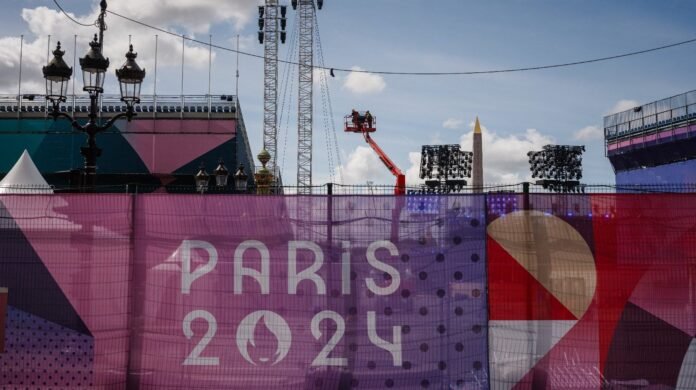Two days before the opening ceremony of the Paralympic Games, on Wednesday 28 August, organizational questions arise.
Ceremonies: surprises and an ode to electro
Orchestrated by artistic director Thomas Jolly, the opening ceremony of the Paralympic Games, which begins at 8 p.m., has yet to reveal all its secrets. On the already known menu, an opening in the heart of the city, with a parade on the Champs-Elysées and then a show on the Place de la Concorde. Titled “Paradox,” it will highlight “all bodies,” stated Thomas Jolly. The musical signature is again Victor Le Masne, composer of the Olympic anthem, while the choreographer is the Swede Alexander Ekman.
The closing ceremony, scheduled for September 8 at the Stade de France, will be the venue for a major electro concert bringing together 24 artists and DJs, including Jean-Michel Jarre, the French electropope surrounded by big names from the French Touch.
Complicated traffic on Wednesday
Paris police chief Laurent Nuñez spoke of “complicated” traffic in the center of the capital on Wednesday, while part of the anti-terror security perimeter, which is off-limits to traffic, will be activated from 7am and all through 2pm. Around 50,000 people are expected for the ceremony, including 15,000 seats open to the public at the bottom of the Champs-Elysées.
Up to 25,000 police officers and gendarmes as well as 10,000 private security agents and 8,000 soldiers from Operation Sentinel will be mobilized for the entire competition.
A record number of delegations
Nearly 4,400 athletes are expected at the Games, for a total of 168 delegations, including refugee Paralympic teams. A record, announced the International Paralympic Committee (IPC), which welcomes three new committees: Eritrea, the Kiribati Islands and Kosovo. A record number of female athletes is also expected, almost 2,000 (1,983), more than double the 2000 Sydney Games (988).
The French delegation, for its part, has 237 athletes involved, including 82 women, represented by the flag bearers Alexis Hanquinquant (para-triathlon) and Nantenin Keita (para-athletics).
Russia and its ally Belarus were banned from the Olympics and Paralympics because of the invasion of Ukraine more than two years ago. Some of their athletes – 88 Russians and 8 Belarusians – were still authorized to participate in the Paralympic Games under conditions similar to those set by the IOC for the Olympic Games.
The village fills up
The Paralympic Village, the same as for the Olympics, opened its doors last Wednesday. In total, the venue will accommodate up to 9,000 people including athletes, administrative agents, assistants, attendants, doctors and physiotherapists. This weekend it welcomed “three quarters” of its inhabitants, Ludivine Munos, responsible for Paralympic integration in Cojo, told AFP.
Already built to be accessible, it has only undergone certain additional changes, such as the addition of seats in the bathrooms, other mobility solutions, a prosthesis repair center. Its surface area has also been reduced as fewer people will live there, with the closure of Île-Saint-Denis present for the Olympics.
New momentum for ticket sales
Subject to questions since its launch last October, with a timid start, ticket sales for the Paralympic Games saw new momentum during the Olympics. More than 1.9 million tickets were sold or allocated on Sunday, the organizing committee told AFP on Monday.
Several sports located in popular locations during the Olympics, such as armchair fencing (Grand Palais), dressage in Versailles or blind football at the foot of the Eiffel Tower have attracted spectators.
